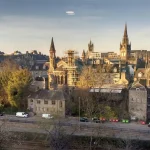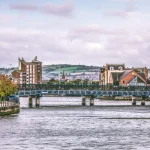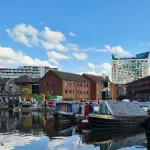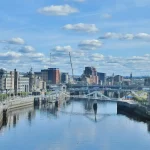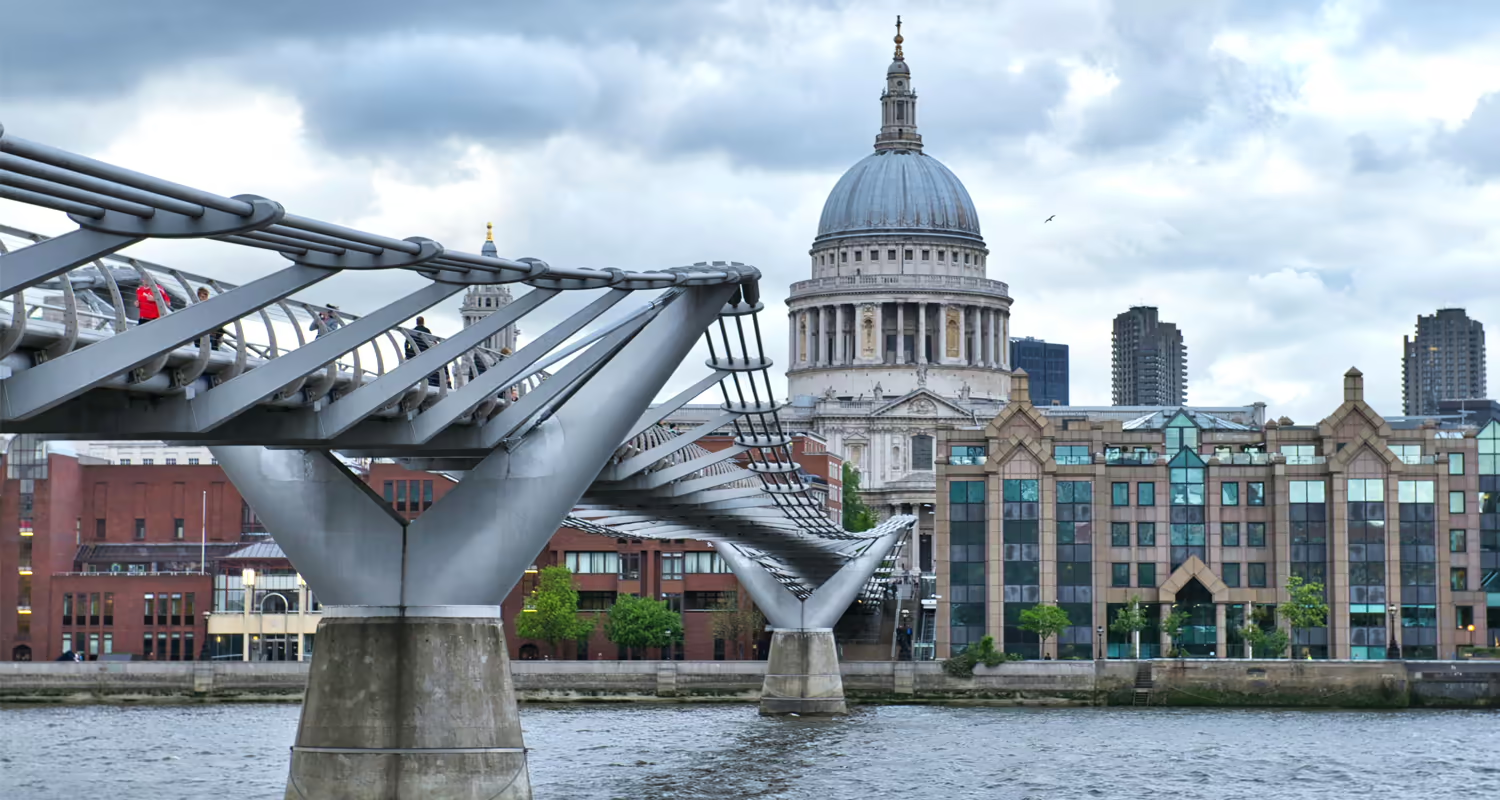
Study in London, international student city guide
London is one of the world’s most vibrant and diverse cities, attracting over 500,000 international students each year. The city combines prestigious universities with a rich cultural scene and a wealth of career opportunities, making it an ideal destination for students worldwide.
One major draw for students is London’s world-class academic institutions, including many universities within the Russell Group – the UK’s leading public research universities. Studying in this city means you’ll be part of a global community, with students and professionals from across the world.
Living in London opens up extensive opportunities for internships and part-time work in key industries such as finance, technology, media, and the arts. And if you want to travel, its location and transport link also allow for easy travel around Europe, providing a broader cultural experience during your study breaks.
Universities in London
London is home to over 40 universities and higher education institutions, each offering specialized programs and diverse academic environments. Below is a breakdown by type and focus:
Comprehensive universities
These universities offer a wide range of choice in undergraduate and postgraduate degrees:
- City St George’s, University of London
- Brunel University London
- University of Westminster
- University of Roehampton
- London Metropolitan University
- University of East London
- London South Bank University
- Middlesex University London
- Kingston University London
- University of Greenwich
- University of West London
- Birkbeck, University of London
- University College London (UCL)
- King’s College London
- Imperial College London
- London School of Economics and Political Science (LSE)
- Queen Mary University of London
- Regent’s University London
- Richmond American University London
- Northeastern University London
Specialist universities
These universities provide degrees with a specific focus.
- The Courtauld Institute of Art
- London Film School
- Royal Veterinary College (University of London)
- Institute of Cancer Research
- London School of Hygiene & Tropical Medicine
- University of the Arts London (UAL)
- Goldsmiths, University of London
- Royal College of Art (RCA)
- Royal Academy of Dramatic Art (RADA)
- London Contemporary Dance School
- Trinity Laban Conservatoire of Music and Dance
- Guildhall School of Music and Drama
- London Business School
- ESCP Business School London
- Hult International Business School
- London School of Business and Finance (LSBF)
- London Film Academy
Russel Group universities in London
London has five Russell Group universities: Imperial College London, King’s College London, University College London (UCL), the London School of Economics and Political Science (LSE), and Queen Mary University of London.
These universities are well known for their strong research and high teaching standards, welcoming students from all over the world with course offerings across a wide range of disciplines.
Studying at a Russel Group university would see you joining a top academic community in the centre of London.
Articles related to studying in the UK
Latest rankings for universities in London
London is home to several universities ranked among the best globally.
To learn more about rankings and how to interpret them, see our University Rankings Explained article.
The table below summarizes their positions in the QS and Times Higher Education (THE) World University Rankings:
| University | QS World Ranking 2026 | THE World Ranking 2026 | Notable Strengths |
| Imperial College London | 2 | 8 | STEM, Medicine, Business, 60%+ international students, top employability, world-leading research |
| University College London (UCL) | 9 | 22 | Multidisciplinary research, sustainability, 50,000+ students, global research networks |
| King’s College London (KCL) | 31 | 38 | Medicine, Law, Social Sciences, global partnerships, top for Nursing, strong sustainability |
| London School of Economics (LSE) | 56 | 52 | Social Sciences, 70% international students, influential alumni, top employability outcomes |
| Queen Mary University of London | =110 | =134 | Research-intensive, diverse student body, strong in Dentistry, Law, Medicine |
| City St George’s, University of London | 328 | 301–350 | Business, Law, Journalism, Engineering, strong links to London industries |
| Brunel University London | 343 | 401–500 | Engineering, Design, Business, Health Sciences, strong industry partnerships |
| Royal Holloway, University of London | 413 | 401-500 | Arts & Humanities, Social Sciences, strong research, picturesque campus |
| SOAS University of London | 511–520 | 401–500 | Asian, African, and Middle Eastern studies, languages, cultural studies |
| Birkbeck, University of London | 343 | 301-350 | Evening higher education, flexible learning, research in Psychology and Humanities |
| Goldsmiths, University of London | 593 | 501-600 | Creative Arts, Design, Social Sciences, strong reputation in media and cultural studies |
| University of Westminster | 711–720 | 801–1000 | Media, Art & Design, Architecture, Business, diverse student body |
| London Metropolitan University | 851–900 | 601–800 | Social Sciences, Business, Law, strong community engagement |
| University of East London | 851–900 | 1,000-1,200 | Health, Sports Science, Business, focus on employability and inclusivity |
Cost of living and tuition fees
Living costs for students in London are amongst the highest in the UK, whilst tuition fees depend on your course and university and will usually range from £15,000 to £35,000 each year.
Accommodation in London is also quite expensive. Most students pay between £6,000 and £12,000 per year for housing. Other costs, like food, transport, and personal items, add about £4,700 to £6,200 per year to your bills.
Here is a rough guide to yearly expenses to budget for whilst studying in London:
- Tuition fees: £15,000 – £35,000
- Accommodation: £6,000 – £12,000
- Food and groceries: £2,000 – £3,000
- Transport: £1,200 (with an Oyster card)
- Other expenses: £1,500 – £2,000
To best manage your finances, plan your budget and look for scholarships like the Chevening Scholarship. Your university may also offer financial aid.
If London is too expensive for your budget but you want to study in the UK for a university degree, you could consider one of the many other cities in the UK.
Visa and immigration information
If you are an international student from outside the UK or EU, you will usually need a Student visa (Tier 4) to study in London. To get this visa, you must meet certain requirements. You can find out more about these requirements and how to apply on our UK student visa guide.
Other cities in the UK
Student life in London
Life in London extends well beyond academic study. The city offers a rich cultural environment with numerous world-famous attractions such as the British Museum, Tate Modern, West End theatres, Tower of London, and Buckingham Palace. These sites provide great opportunities to explore history, art, and entertainment. Many of these places offer student discounts, so make sure to take advantage of this!
For outdoor activities and relaxation, London features several large parks, including Hyde Park, Regent’s Park, and Richmond Park, which are popular among students.
Universities host a wide range of student societies and clubs catering to sports, cultural interests, arts, and professional development. These groups offer social interaction and support networks, helping students feel part of the community.
London’s diverse culinary scene includes restaurants serving cuisine from around the world, as well as lively nightlife districts catering to various tastes and preferences.
Like all capital cities, London has lots of things to do and see. These are some of the most interesting sights for international students to enjoy:
- London Eye – Iconic Ferris wheel with panoramic city views.
- Natural History Museum – Free museum with dinosaur skeletons and interactive exhibits.
- Camden Market – Vibrant spot for street food, vintage shopping, and live music.
- Sky Garden – Indoor garden with free entry and spectacular city views.
- Big Ben and the Palace of Westminster – Famous clocktower and seat of UK parliament.
Sign up to our regular email updates with advice on destinations, universities, scholarships and everything you need to prepare for studying overseas.
Sign up to our free emails nowGetting around London
London’s public transportation system is extensive and efficient, making it easy to commute or explore the city.
- London Underground (Tube): The fastest way to travel across the city, connecting most areas.
- Buses: Cover routes not accessible by the Tube and are usually a more affordable option.
- Cycling: Santander Cycles offer bike hire across the city, with many dedicated bike lanes.
- Walking: Central London is very walkable, ideal for short trips and exploring local areas.
- Payment: Use a reloadable travel card, such as an Oyster card, or contactless payment card to reduce travel costs and simplify access to public transport.
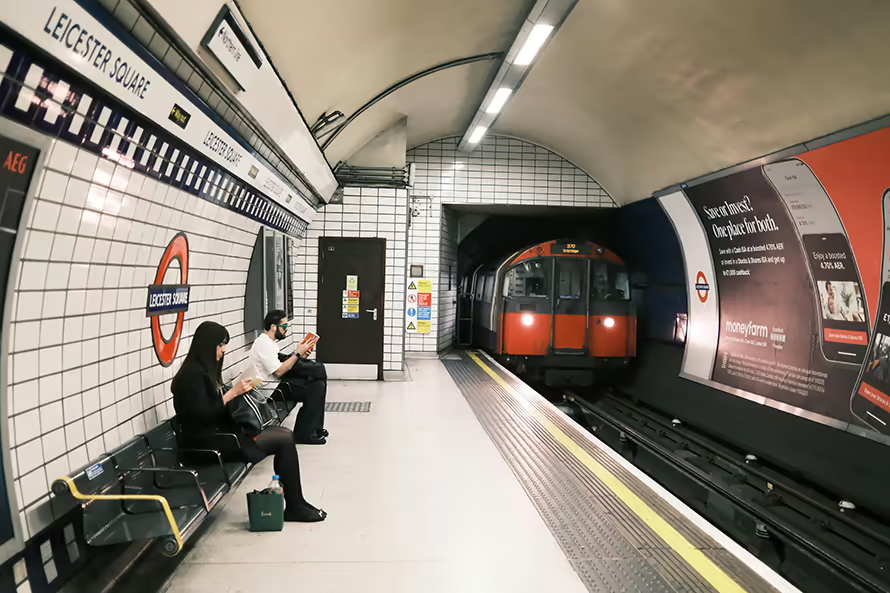
Safety for international students
While London is generally a safe city, it is important that you stay aware of your surroundings, especially at night or in less busy areas like parts of outer boroughs or quiet streets in Central London after dark.
When travelling at night, use black cabs, which are approved by Transport for London (TfL), or trusted apps like Uber or Bolt. Avoid unmarked or unofficial taxis. Keep your phone and bag close, especially in busy areas like Oxford Street, Camden, or on public transport during rush hour, where pickpocketing can happen.
For more information about staying safe in a new city, read our top tips about staying safe.
Career opportunities
London is one of the world’s best cities for employment. It is a global centre for finance, with banks and major companies based in areas like Canary Wharf and the City of London. The city also has many jobs in technology, especially in places like Shoreditch and King’s Cross, where tech start-ups and big companies like Google and Microsoft have offices.
If you are interested in healthcare, London has many leading hospitals and research centres. Students studying medicine, nursing, or health science can often find placements or part-time work. Law students benefit from being near top law firms and important courts such as the Old Bailey and the Royal Courts of Justice.
London is also a major hub for media and creative industries. It is home to broadcasters like the BBC, ITV, and Sky, as well as many film studios, theatres, design agencies, and music companies. Students in subjects like film, drama, fashion, design, and music can find exciting opportunities in areas such as Soho, Hackney, and Camden. Creative jobs might include working on TV shows, theatre productions, digital design, music festivals, or art exhibitions.
Universities in London often have strong links with companies in these sectors. They can help students find internships and part-time jobs. They also provide support with writing CVs, preparing for interviews, and attending job fairs.
After graduation, international students can apply for the UK’s Graduate Route visa. This visa allows you to stay in London and work for up to two years, giving you valuable experience in one of the most creative and dynamic job markets in the world.
Pros and cons of studying in London
Pros
- Top universities – Home to many world-ranked institutions.
- Career options – Jobs in finance, tech, healthcare, media, and more.
- Cultural life – Museums, theatres, parks, and global cuisine.
- International vibe – Diverse, welcoming student community.
- Post-study visa – Stay and work for up to two years after graduation.
Cons
- High living costs – Rent and daily expenses are expensive.
- Costly tuition – Fees range from £15,000 to £35,000.
- Crowded transport – Busy commutes, especially at rush hour.
- Safety concerns – Be cautious at night or in quiet areas.
- Visa admin – Requirements can be complex and time-consuming.
Related articles

